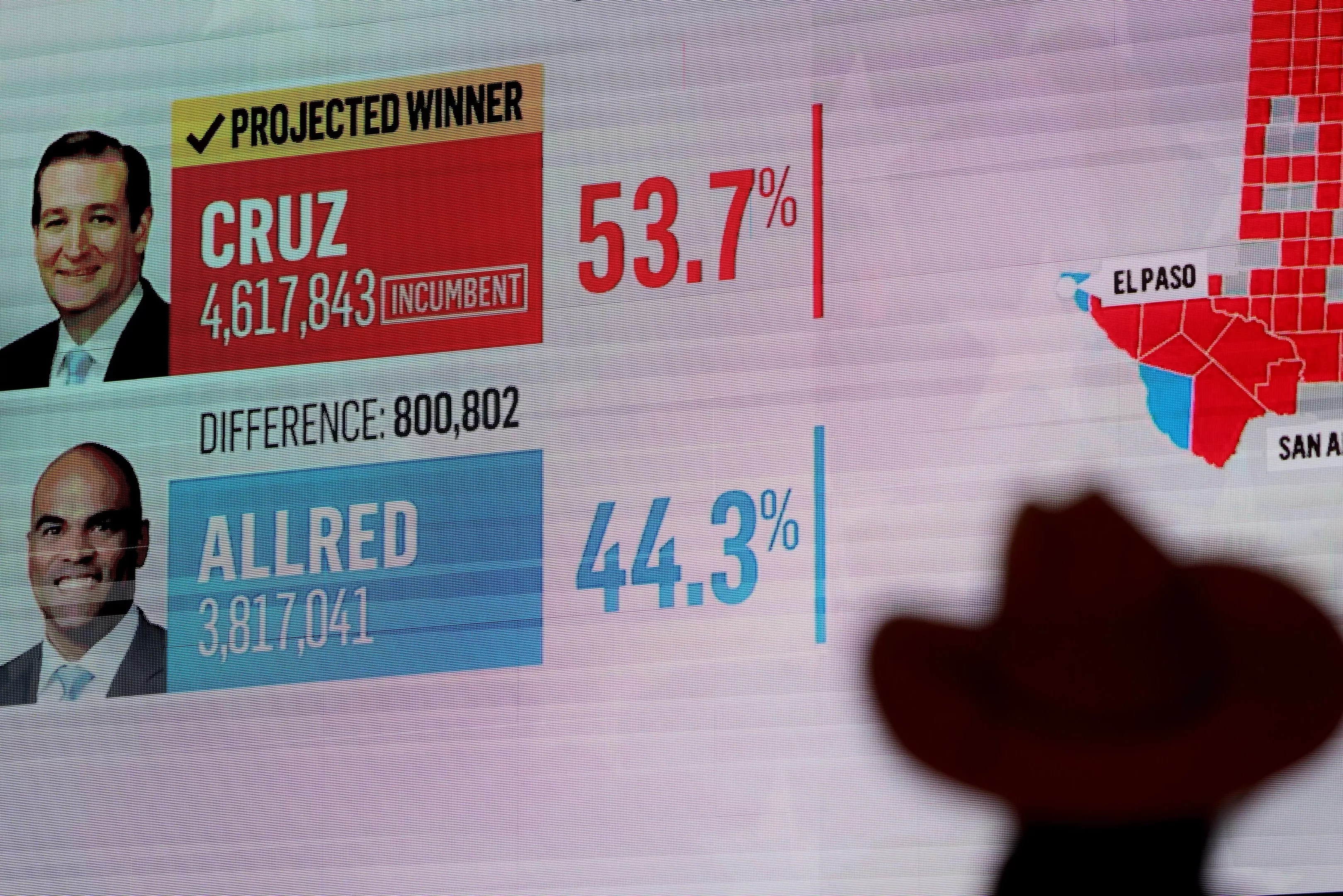
Nathan Hunsinger

Audio By Carbonatix
While the nation showed a desire for seismic change from one end of the political spectrum to the other, the state of Texas also opted for change. But instead of going for blue over red, voters convincingly chose a deeper shade of red. As is the case with Texas politics these days, Democrats on the ballot weren’t the true opponents.
In Texas, many of the November races were more or less determined eight months earlier, on Super Tuesday, when Republican challengers backed by Texas Gov. Greg Abbott and Texas Attorney Gen. Ken Paxton took down many GOP incumbents who had opposed the two leaders in the previous year.
“I definitely think the primary season showed us how last night was going to go,” said Ben Voth, associate professor of rhetoric and director of debate and speech programs at Southern Methodist University, on Wednesday morning after the election.
Once the projections started rolling in on Tuesday night, Abbott shot off one celebratory, congratulatory tweet after another. It’s not unreasonable to think he could have written the posts and saved them in his drafts folder months ago with a high degree of confidence he would be able to deploy them shortly after the polls closed on Nov. 5. Undoubtedly, Abbott’s glee is due in large part to the increased likelihood that his long-adored school voucher program will finally have the House votes needed to pass.
Every candidate that I backed in Texas House general election races won tonight.
We even had Republican candidates win seats that had been held by Democrats.
There are more than enough votes to pass school choice in Texas.
— Greg Abbott (@GregAbbott_TX) November 6, 2024
The governor may think school vouchers are imminent, but Voth isn’t ready to concede that passage will be easy, considering that the Texas House has stubbornly kept the program from becoming law for so long.
“I have been surprised that [a school voucher program] hasn’t already passed, but the Texas House has been a tricky one to figure out,” Voth said. “I don’t think it’ll be a cakewalk, but it is definitely more likely now than it ever has been. Do I think the public wants it? Yes. Do I for sure think the House will for sure pass it? I have to admit I think there might still be some sort of strategic resistance, but vouchers have passed in other states that are less conservative than Texas.”
In the highest-profile race in Texas on Tuesday, incumbent U.S. Sen. Ted Cruz rather easily defeated challenger Colin Allred. Regardless of recent polls suggesting the race was neck-and-neck, there was little drama involved as Cruz jumped ahead early and extended his lead throughout the night.
Allred conducted a quieter, less splashy campaign than previous Cruz challenger Beto O’Rourke did in 2018, opting to focus on bipartisanship and his pro-choice stance on abortion rights. But according to Voth, that approach fell flat, thanks in part to the way Cruz was able to frame the abortion debate as one for other officials, not U.S. senators, rendering it somewhat moot.
“Especially in their debate, Cruz said to Allred, ‘Whether you like it or not, the issue is framed at the state and local level, so, Colin, you need to either run for governor or for the state House if you want to change the nature of abortion politics,'” Voth noted.
Allred didn’t come nearly as close to defeating Cruz as O’Rourke did. That’s notable because O’Rourke was brazenly open with his left-wing views but Allred seemed to say everything he could to appease Republican voters outside of actually changing parties. With that in mind, it’s difficult to envision how a Democrat in Texas can win a statewide office, whether it be a U.S. Senate seat, the governor’s mansion or the AG’s office.
Voth thinks there’s a path for Democrats to eventually win here, although it’s not the one Allred tried to blaze. Regardless, there’s a lot of work ahead for others seeking any office who may try to turn a deep red Texas blue in the future.
“I still think the O’Rourke campaign in 2018 can be a template,” he said. “I can think of things O’Rourke did wrong in 2018 and in 2020, but I think someone who will be aggressive like he was, and will go to every county and have all those conversations has a chance. It’s possible to construct a campaign that works hard but doesn’t force certain issues on Texans and gets creative with ideas for other issues, like vouchers.”